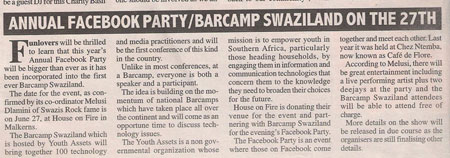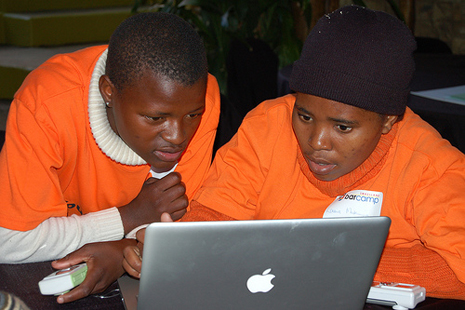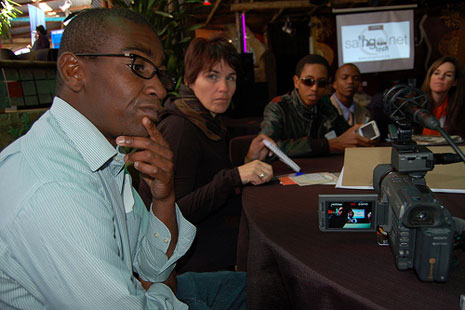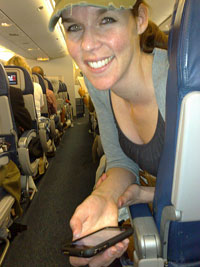Social Media in Swaziland: Swazis Rock
Swaziland. The last absolute monarchy in Africa, led by King Mswati III, famous for choosing new wives at the annual Umhlanga (Reed Dance) of bare-breasted virgins. Traditional healers, sangomas, who channel ancestral spirits and pound herbs into potions. A country with one of the highest rates of…mobile phone penetration in the world. Up to 90% of the population, even in rural areas, lives within range of a mobile network. Most people have access to mobile phones, but not computers. Youth constantly send SMS messages, check MXit or Facebook through their phones, and send airtime to each other.
 Tibusiso Msibi, a stylish 18-year-old with long braids who is hoping to study multimedia at university, was asked in a BarCamp Swaziland session if she uses Facebook:
Tibusiso Msibi, a stylish 18-year-old with long braids who is hoping to study multimedia at university, was asked in a BarCamp Swaziland session if she uses Facebook:
“I use Facebook, Hi5, everything. But Facebook is my favorite.”
When asked how many Facebook friends she’s got, she responded:
“Oh my gosh, I’ve lost count.”
Tibusiso, along with over 1900 Swazis, is a Facebook fan of Swazis Rock, which has as its motto “Stomp Your Feet, Shake the World”, and throws an annual bash that it bills as a “Facebook party” that draws hundreds of young people from around Swaziland, who do a lot of feet stomping.

Swazis Rock says that it is their “fundamental belief that through imagination, information and innovation, we can build a company that utilizes cutting-edge technologies to portray to the outside world the positive attributes of our collective Swazi identity.”
Swazis are using social networks such as Facebook to express themselves. Official Swazi media websites may be pressured, for example, to remove user comments that are critical of the government (“Mr Editor, why aren’t the comments visible anymore? What’s the point of the comments section if they can’t be viewed?”). In May, Swazi dissident Mfomfo Nkhambule, who beseeched King Mswati to keep his promise to provide free primary education to Swazi children, had his controversial column dropped by the Times of Swaziland newspaper, but he has a profile on Facebook as well as a blog.















 In the seat in front of me, 38G, sits
In the seat in front of me, 38G, sits